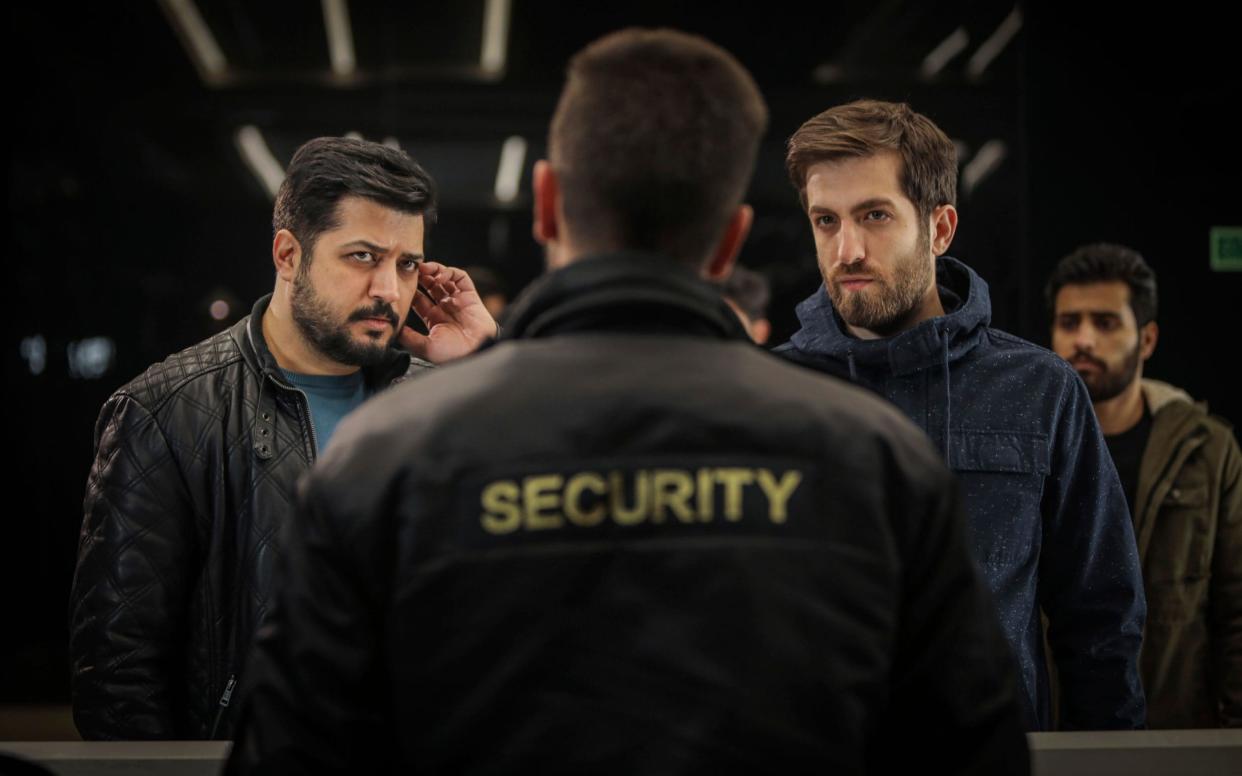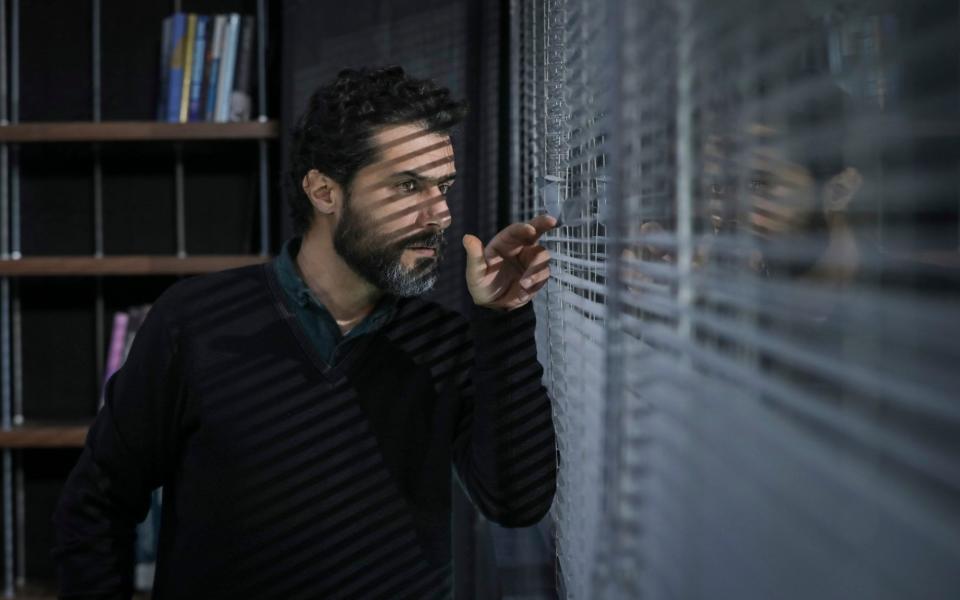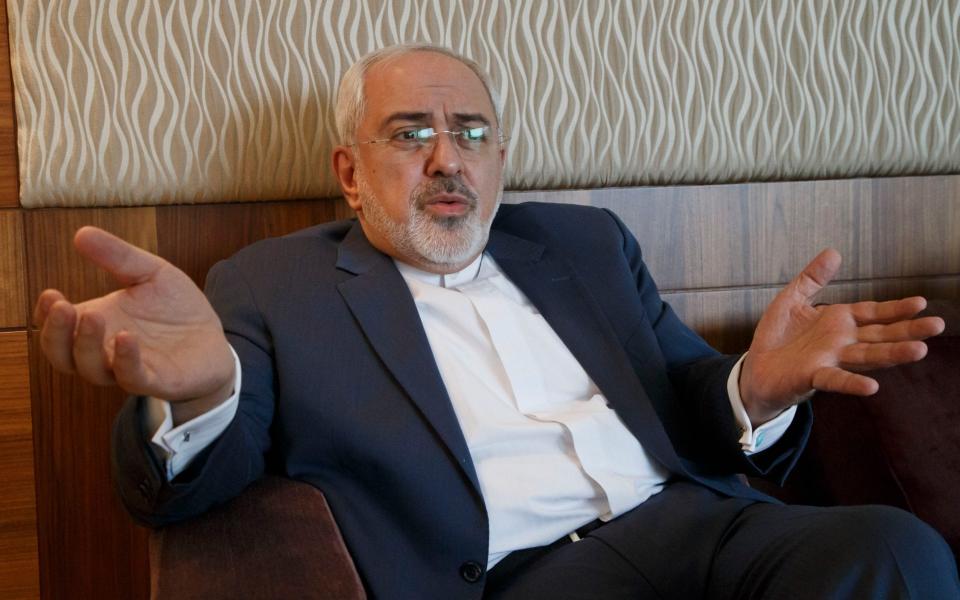Iran's hit spy thriller is first shot in election culture war

- Oops!Something went wrong.Please try again later.
A culture war is heating up in Iran ahead of upcoming presidential elections with a popular television series and a hyped new social media platform becoming battlegrounds between reformists and hardliners fighting for the future of the Islamic Republic.
Last month, screening of Gando, a Farsi-language spy thriller in the vein of Netflix dramas Homeland and Fauda, was halted midway through its second season amid criticism that it was being used to hype the Islamic Revolutionary Guard Corps and denigrate moderates.
Airing on Iran’s state-run television, the high-budget production is funded by a cultural centre with links to the IRGC and features storylines based on current events and infused with conspiracy theories.
The first season featured an American-Iranian spy who bore a close resemblance to Jason Rezaian, the Washington Post journalist who was arrested in Iran in July 2014 and detained January 2016.

The second season starts with a dramatic recreation of the arrest of dissident Iranian journalist Ruhollah Zam, who was lured to northern Iraq in an IRGC sting operation before being kidnapped and transported across the border to Iran, where he was eventually executed. Another episode depicted Iranian forces boarding the British-flagged oil tanker Stena Impero in the Persian Gulf.
“They’ve taken a lot of actual things happening inside the country and they’ve woven in this series of stories that depict them [the IRGC] in a good light and show why it was good for them to make these controversial actions,” said Holly Dagres, an Iran specialist at the Atlantic Council.
But it was scenes in which a minister unwittingly hires MI6 spies who then undermine Iran’s nuclear talks with world powers that drew condemnation from Iranian civilian officials, who say it incorrectly portrayed them as overwhelmed by Western intelligence agencies.
When the show was abruptly pulled off the air midway through its second season, many in Iran assumed it had been censored by the civilian government. An assurance by an adviser to the president that the government had not pressed for the show’s cancellation did little to convince many.
The moderate leader most threatened by the show, apparently, was Iran’s foreign minister, the Western-educated Mohammad Javad Zarif, who is widely tipped as a potential presidential candidate.
The show “is a lie from the beginning to the end,” Mr Zarif said recently, that “damages foreign policy more than me.”
Mr Zarif had appeared unexpectedly in a chat room on the new social media platform Clubhouse. And while he denied this appearance was ahead of a presidential bid, analysts like Ms Dagres asked why else would the Iranian leader stay up two hours past his stated 10pm bedtime chatting about Iran’s 25-year strategic accord with China, if not to advance his political aspirations?

June’s vote has more at stake than most as moderate President Hassan Rouhani steps down after reaching his two term limit. Iran’s octogenarian supreme leader Ali Khamenei could well die during the next president’s term, triggering a succession process that would shape Iran for decades to come and that has unfolded only once since the Islamic revolution.
With hardliners in the ascendancy, having won a large margin in last February’s parliamentary elections, the presidency is one of the few positions not within their control. With many Iranians disillusioned as the country strained under the weight of American sanctions, they are aiming to whip up their base amid expected weak turnout.
The Iran nuclear deal is bound to be a hot button issue. For the moderate camp, President Rouhani’s 2015 deal with world powers is a key policy that ought to have enabled Iran’s return to the world economy. For hardliners, who deeply opposed limiting Tehran’s nuclear programme, former US president Donald Trump quitting the pact is proof that the West is not to be trusted and moderates who promote engagement are foolish.
President Joe Biden has promised to re-engage with the deal, if Iran returns to compliance, but indirect talks are stuck on who should act first. If an agreement is reached before June, this will be a major boost to the moderate camp, said Ms Dagres.
Hardliners “don’t want these talks to succeed,” she said. “If they do before the June 18 vote that might give some hope to the Iranian people and get them to go to the polls and vote for a more moderate candidate like Zarif, if he’s allowed to run.”

